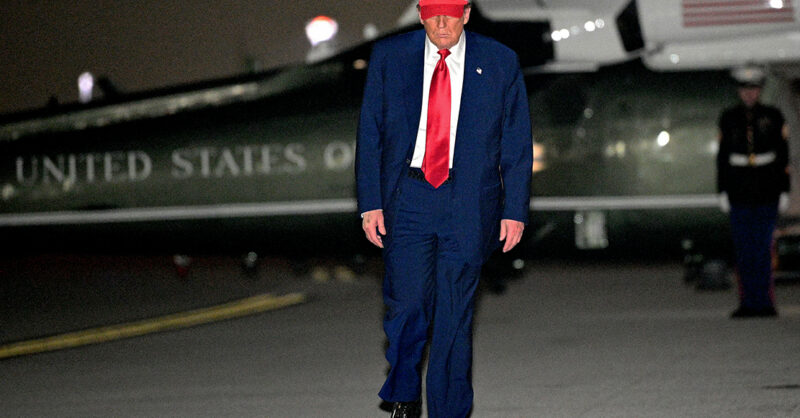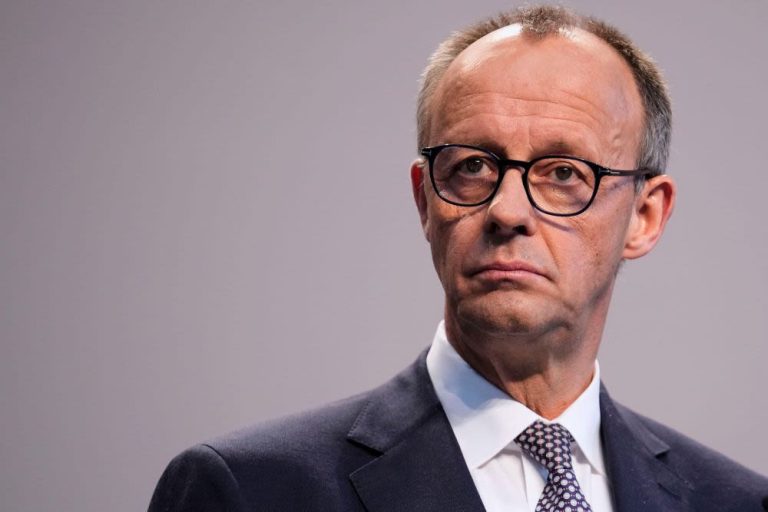
TOPSHOT - US President Donald Trump steps off Marine One and walks to board Air Force One before departing Miami International Airport, in Miami, Florida on April 3, 2025. Trump is travelling to his Mar-a-Lago Resort. (Photo by Mandel NGAN / AFP) (Photo by MANDEL NGAN/AFP via Getty Images)
The political dynamics within the Republican Party have taken center stage as discussions intensify over whether Republicans should reclaim control from former President Donald Trump, particularly regarding his sweeping trade policies. While Trump has partially retreated from his « Liberation Day » announcements, the significant tariffs he’s enacted continue to impact both the global and US economies. The core question facing Republican legislators is whether Congress, particularly GOP members, will take definitive action to limit the president’s trade negotiation powers.
The Role of Congressional Authority
The authority granted under the International Emergency Economic Powers Act 1977 and the National Emergencies Act 1976 enables the president to declare a national emergency and unilaterally impose tariffs. However, these acts crucially permit Congress to pass a joint resolution to terminate any declared national emergency, effectively rescinding the president’s ability to enforce tariffs.
For such resolutions to come to fruition, they require a two-thirds majority in both the House and the Senate. This means that a substantial number of Republicans – at least 20 out of 53 Republican senators and 82 out of 220 Republican representatives – would need to advocate for this legislative course. Alternatively, new legislation could chart a similar path, yet would still face the hurdle of a presidential veto, thus demanding the same supermajority.
The Uncertainty and Economic Disarray
Trump’s tariff policies have introduced significant economic uncertainty. Republican lawmakers face mounting pressure to address the tariffs’ far-reaching consequences, which include higher consumer prices, escalating business uncertainty, reduced investment, increased national debt interest, and a weakened dollar. Beyond the immediate economic implications, these policies are believed to diminish U.S. geopolitical influence on the international stage.
Despite the evident discontent within Congress regarding Trump’s trade approach, the coalition within the Republican Party behind Trump’s « Make America Great Again » movement remains influential. This faction’s hold on the party complicates efforts to dismantle the tariffs, fostering an environment where sweeping rebellions appear improbable.
Drawing Parallels and Learning from History
The current situation in the U.S. resonates with the political climate in the UK back in September 2019. At that time, the UK Parliament intervened when the government threatened an aggressive, isolationist approach to trade negotiations, risking a no-deal Brexit. British lawmakers took decisive action, passing legislation to push the government toward a more pragmatic negotiation strategy and avoiding a potential catastrophe.
For Congressional Republicans, this serves as a historical reminder of the power and responsibility they bear. Although initiatives to end Trump’s tariffs face steep challenges, Republicans must weigh the cost of inaction against their oath to safeguard national interests.
Arguments Against Intervention
The debate against congressional intervention revolves around several key arguments:
- Leverage in Negotiations: Some argue that Trump’s threats create necessary leverage in negotiations. However, critics assert that his unpredictable tactics lack a coherent strategy, undermining any potential benefits.
- Democratic Process: Opponents claim that curbing the president’s powers thwarts democracy. Yet, like parliamentary intervention in the UK, Congressional involvement is framed not as undermining democracy, but as fulfilling constitutional duties.
- Political Repercussions: Taking a stand could incur political costs for Republican legislators, risking alienation from their party leader and base, and possibly ending political careers prematurely.
Despite these deterrents, the responsibility remains for those emboldened to preserve economic stability and protect constituents’ welfare. The consequences of unchecked policy actions reverberate across the nation, and history may judge lawmakers on their willingness to act during pivotal moments.
The onus is on Congressional Republicans to navigate this complex political landscape and consider decisive actions similar to those taken by their UK counterparts in 2019. With the broader ramifications of trade tariffs looming, reclaiming legislative authority represents not only a strategic imperative but also a stepping stone toward restoring confidence in American economic policy.



